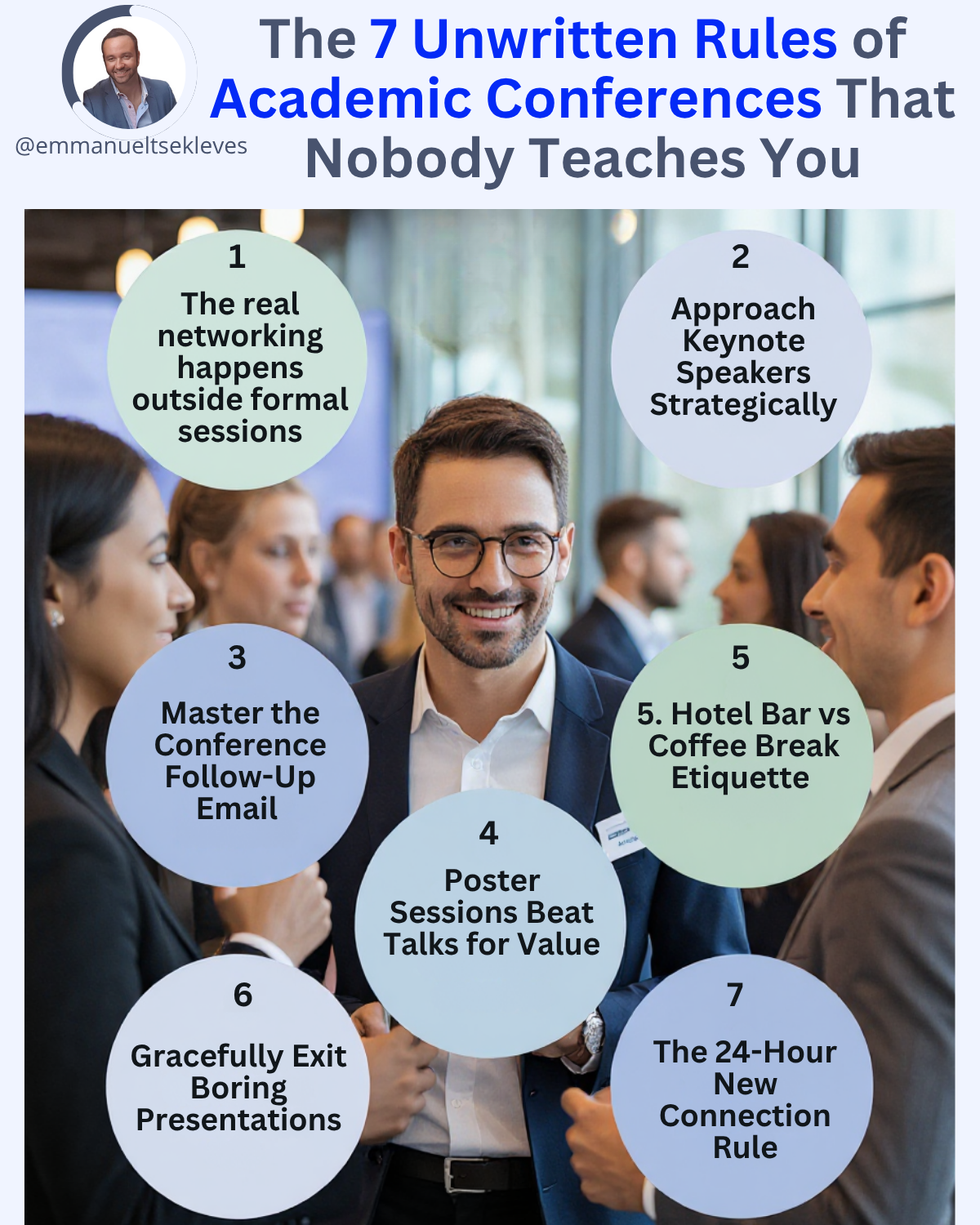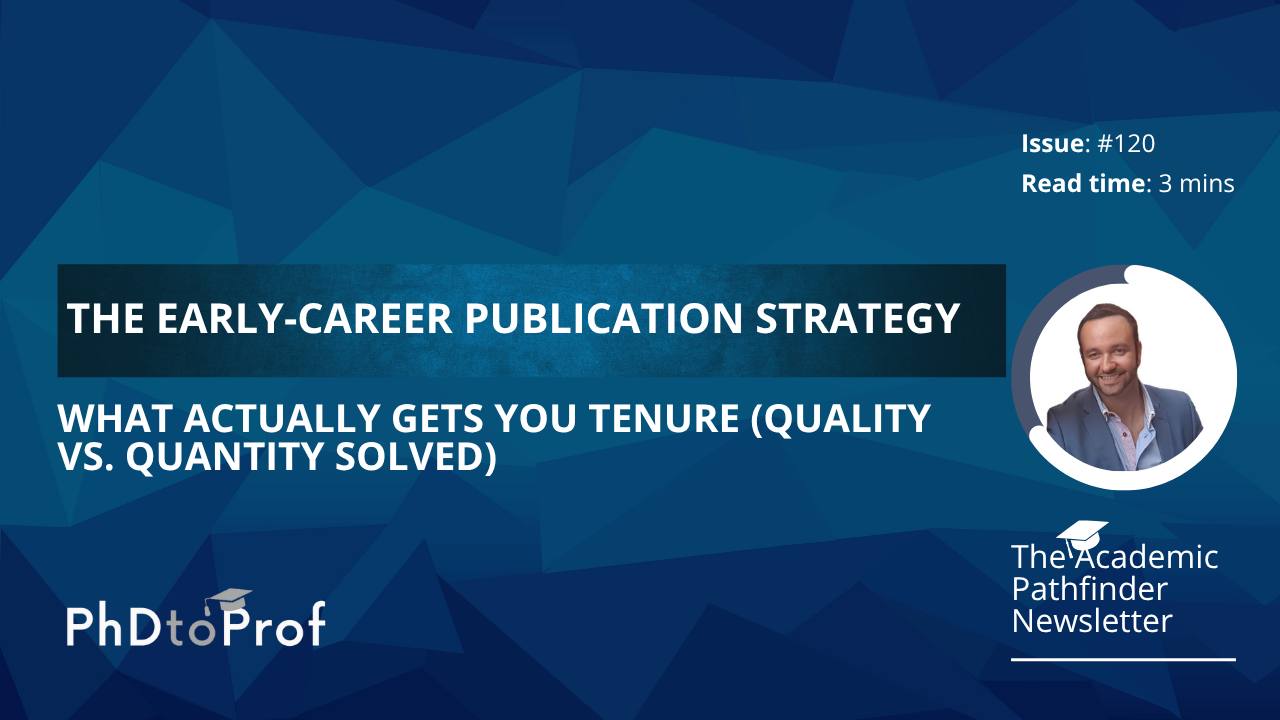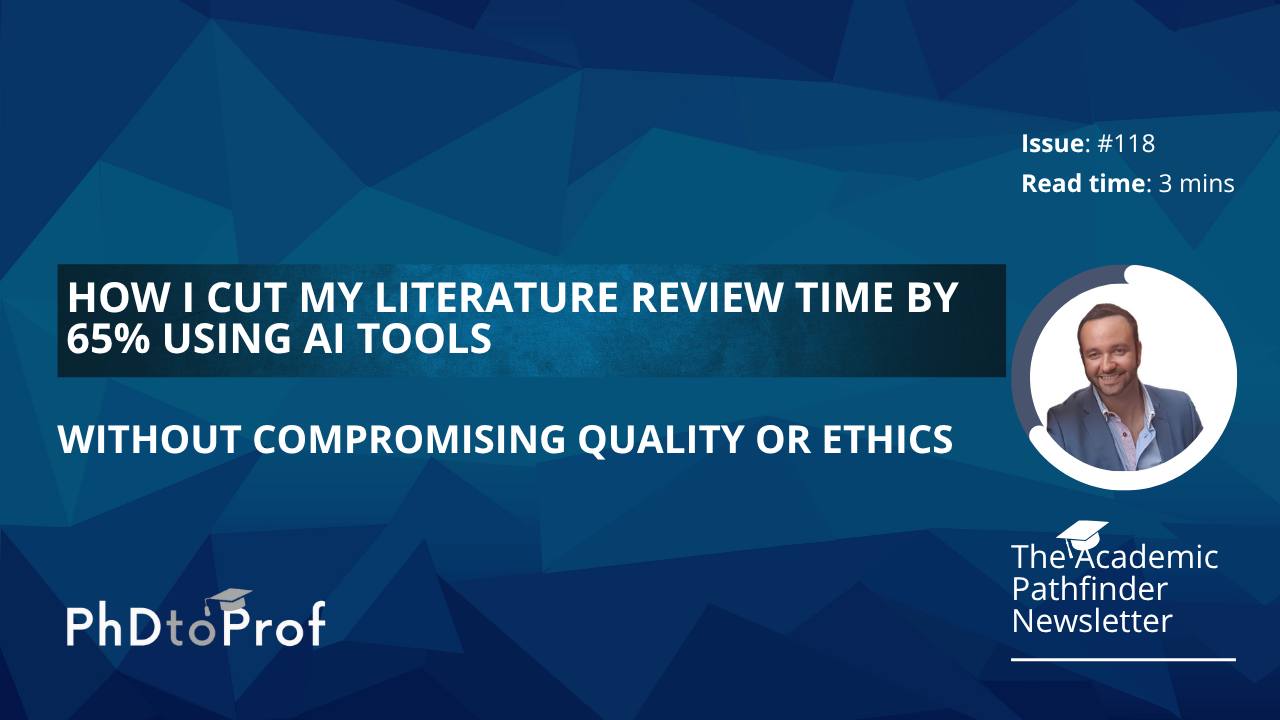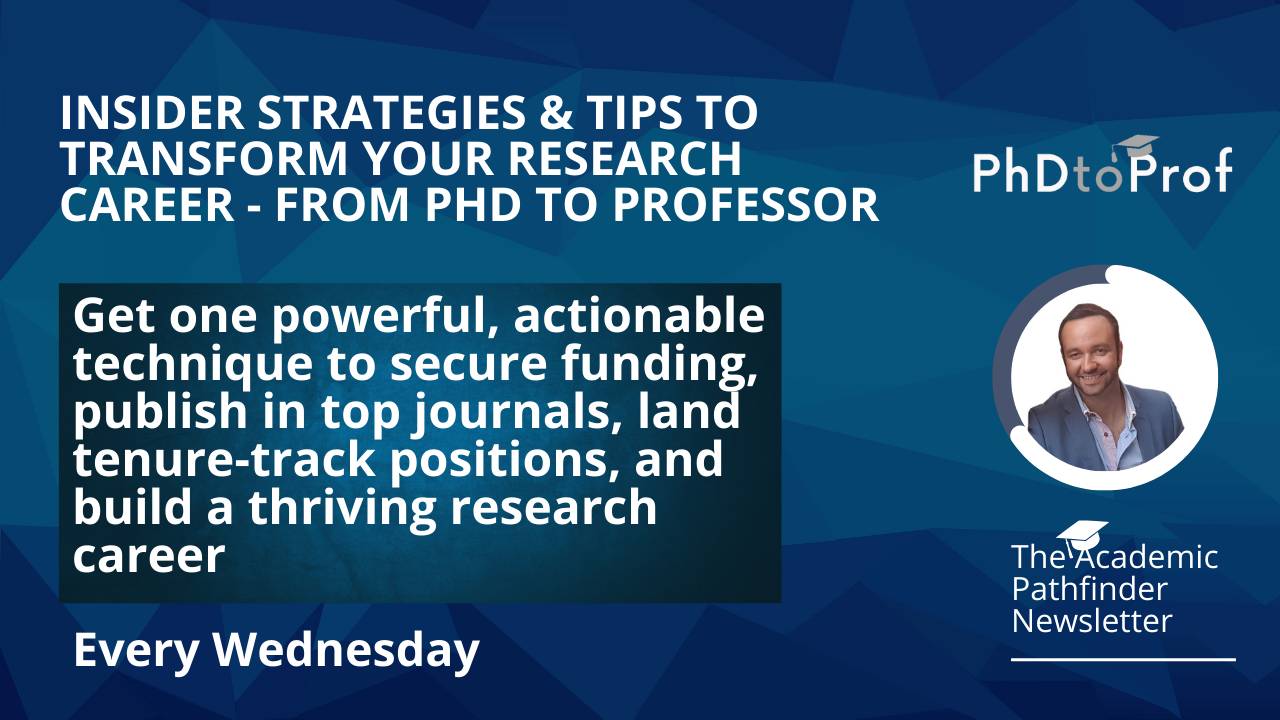#119 - 7 Smart Strategies to Attend Conferences Without Going Broke (Even on a PhD Stipend)

Today, I'm sharing the exact seven-step system that helped me attend 12 conferences during my PhD years without going into debt, strategies that have since helped dozens of my students access networking opportunities they thought were financially impossible.
22 October 2025
Read time: 3 minutes
Supporting our sponsors directly helps me continue delivering valuable content for FREE to you each week. Your clicks make a difference! Thank you. Emmanuel
Validate Research Questions in Minutes Instead of Months with Consensus
Stop endless literature searching. Consensus analyzes millions of peer-reviewed papers to test your research questions against existing scientific literature and reveal where the evidence actually stands within minutes.
Use the Consensus Meter to see scientific agreement visually, export comprehensive reports for your literature review, and share validated research directions with your supervisor.
Use AI to accelerate research validation while you focus on original thinking and novel contributions. Start with Consensus free, or unlock 1 month of Pro free using my link at:
Academic conferences are essential for building your network, presenting research, and advancing your career, but they're incredibly expensive.
Most graduate students and early-career researchers skip valuable conferences because they think they can't afford them, missing critical networking opportunities that could change their careers.
What if there were proven strategies to attend important conferences even on a tight budget?
Today, I'm sharing the exact seven-step system that helped me attend 12 conferences during my PhD years without going into debt, strategies that have since helped dozens of my students access networking opportunities they thought were financially impossible.

During my first year of PhD study, I skipped every conference because I couldn't imagine affording registration fees, flights, hotels, and meals on my stipend.
Watching my peers build networks and present their work made me feel increasingly isolated and behind.
Everything changed when a senior student taught me the strategic budgeting and funding techniques that successful academics use to attend conferences regularly.
These strategies helped me attend important conferences throughout my PhD and later on with limited faculty budgets, without financial stress and opened doors that transformed my career trajectory.
Strategy #1: Start with Free or Low-Cost Funding Sources
Many PhD students don't realize how much conference funding is available if you know where to look.
How to find it: Check your department's graduate student organization, your university's graduate school, your academic society's student chapters, and travel grant programs specific to your field.
Many of these sources offer $300 to $1,500 in conference support that most students never apply for.
Create a spreadsheet listing all potential funding sources with their deadlines and requirements.
Apply to multiple sources for each conference since awards are often stackable.
Strategy #2: Choose Conferences Strategically Based on Cost and Value
Not all conferences provide equal value for career advancement.
Focus on events that offer the best return on your investment.
How to evaluate: Examine registration costs, location, likelihood of meaningful networking, and whether you'll be presenting.
Regional conferences often provide similar networking value at a fraction of the cost of major international meetings.
Calculate total estimated costs including registration, travel, accommodation, and meals before committing to any conference.
Strategy #3: Use the Student Volunteer Discount Program
Many conferences offer significantly reduced or free registration to student volunteers willing to work a few hours.
How to access it: Look for volunteer opportunities on conference websites or contact conference organizers directly to ask about volunteer programs.
Most require just 6-10 hours of work like staffing registration desks or helping with sessions.
Apply early since these positions fill quickly and can save you $250 to $800 in registration fees.
Strategy #4: Maximize Accommodation Savings Through Strategic Planning
Hotel costs often exceed registration fees, but there are multiple ways to reduce this expense dramatically.
How to save: Share hotel rooms with 2-3 other conference attendees you connect with beforehand through social media or department listservs.
Explore staying in hostels, Airbnbs, or hotels slightly farther from the venue using public transportation.
Book accommodations as early as possible to access lower rates and better options for sharing.
Strategy #5: Leverage Presentation-Based Funding Opportunities
Many funding sources prioritize or exclusively support students who are presenting research at conferences.
How to maximize: Submit abstracts to several relevant conferences.
Having an accepted presentation opens up funding opportunities and strengthens grant applications.
Mention your accepted presentation prominently in all funding applications.
Some conferences offer reduced registration specifically for presenters, providing additional savings.
Strategy #6: Plan Budget Travel and Meals Strategically
Transportation and food costs add up quickly but can be managed with advance planning.
How to reduce costs:
- Book flights 6-8 weeks in advance for better rates.
- Explore nearby airports with cheaper flights and ground transportation.
- Use conference app networking features to organize group meals where costs can be split affordably.
Strategy #7: Create a Multi-Year Conference Investment Plan
Instead of trying to attend everything, create a strategic plan for which conferences matter most at different career stages.
How to plan:
- Identify 2-3 must-attend conferences per year that align with your career goals.
- Build relationships at these recurring events rather than spreading yourself thin across many different conferences.
- Track your conference spending and return on investment to refine your strategy over time.
The Complete Budget Template
Use this framework to estimate total conference costs before committing to attend.
How to calculate: List all expenses including:
- registration,
- flight or transportation,
- accommodation (divided by number of roommates),
- meals (minus provided conference meals),
- ground transportation,
- and incidentals.
Subtract all secured funding to see your actual out-of-pocket cost.
Only commit to conferences where you can cover costs without going into debt or seriously depleting savings.

Key Takeaways:
- Apply to multiple funding sources for each conference since many awards are stackable and significantly reduce costs
- Volunteer for reduced registration and share accommodation to cut the two biggest conference expenses dramatically
- Plan strategically across multiple years rather than trying to attend every potentially interesting conference
→ Your Action Plan for This Week
- Create a spreadsheet of all available conference funding sources in your department and field
- Identify 2-3 strategic conferences for the next year and calculate total estimated costs
- Research volunteer opportunities and room-sharing options for your target conferences
What's your biggest barrier to attending conferences? Reply and share your specific budget challenges!
Well, that’s it for today.
See you next week.
Whenever you're ready, there are 3 ways I can help you:
1. Get free actionable tips on how to complet your PhD and secure a tenure-track job in academia by following me on X, LinkedIn me Instagram and BlueSky
2. Take my proven Academic Job Accelerator Program that has helped hundreds of researchers secure academic positions, and start with my free training videos to learn the exact strategies hiring committees respond to.
3. Join my Premium 1:1 PhD Mentorship Program. I provide exclusive, results-driven support for professionals who need fast-track guidance on proposals and thesis completion. DM or email me to learn more about this premium consultancy for serious professionals ready to succeed quickly.




Responses